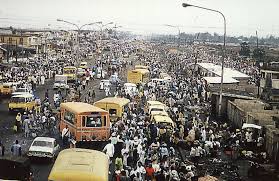Reforming planning law in Lagos – Part 1

By Imran O. Shitta-Bey
Since human life as we know it cannot exist without Land, water and air, changes we make to them and development that affects them need to be sustainable as these will impact on our social, economic and environmental well being as a people. New developments should therefore contribute to sustainable development rather than building for building’s sake.
U.N. Millennium Declaration defines sustainable development as development that meets the needs of the present without compromising the ability of future generations to meet their own needs.
For decades, monumental abuse of development control Laws aided by the lack of a will to enforce them turned much of Lagos into urban slums most Lagosians live and work in today. We either live in it or work in it or in most cases both. Virtually no one, no matter how highly placed can carry on activity in Lagos completely free of the negative impact of slums in Lagos.
By international best practice standard, the main criterion for the appraisal of urban planning is how effective it is in managing population growth. This is because (as expected) population growth increases pressure on the social need for housing, education and health. At the same time, it creates challenges for the environment, community health and transportation.
Urban centres such as Lagos are begging for a forward looking and holistic planning policy regime that will continually manage growth in population, prepare its local communities to accommodate attendant increased demand on their physical, social and green infrastructures while at the same time create opportunities for such communities to thrive amidst a growing population.
The author submits that such holistic planning policy ought to consider proposals for land development not only as an opportunity to plan for the physical use of land but also as a means to encourage provision of additional social amenities, delivery of essential infrastructure and the creation of opportunities that can support growth (through planning conditions and agreements), thus making developments more sustainable.
As in all developed environments, how government administers the use of land, air and our water (Planning) can be a key catalyst for the attainment of major socio-economic development goals.









